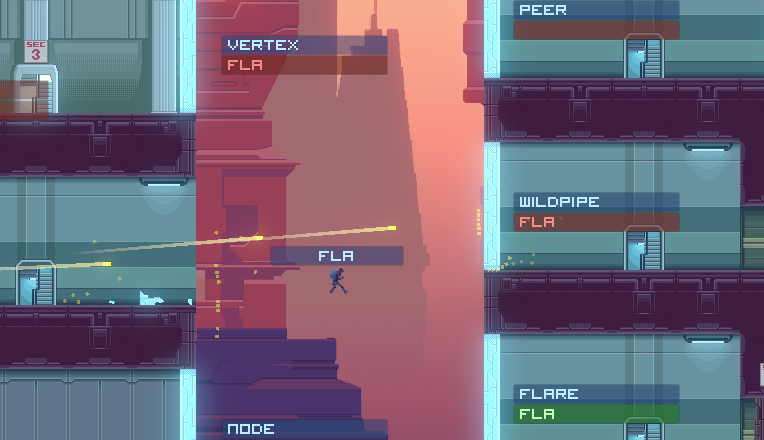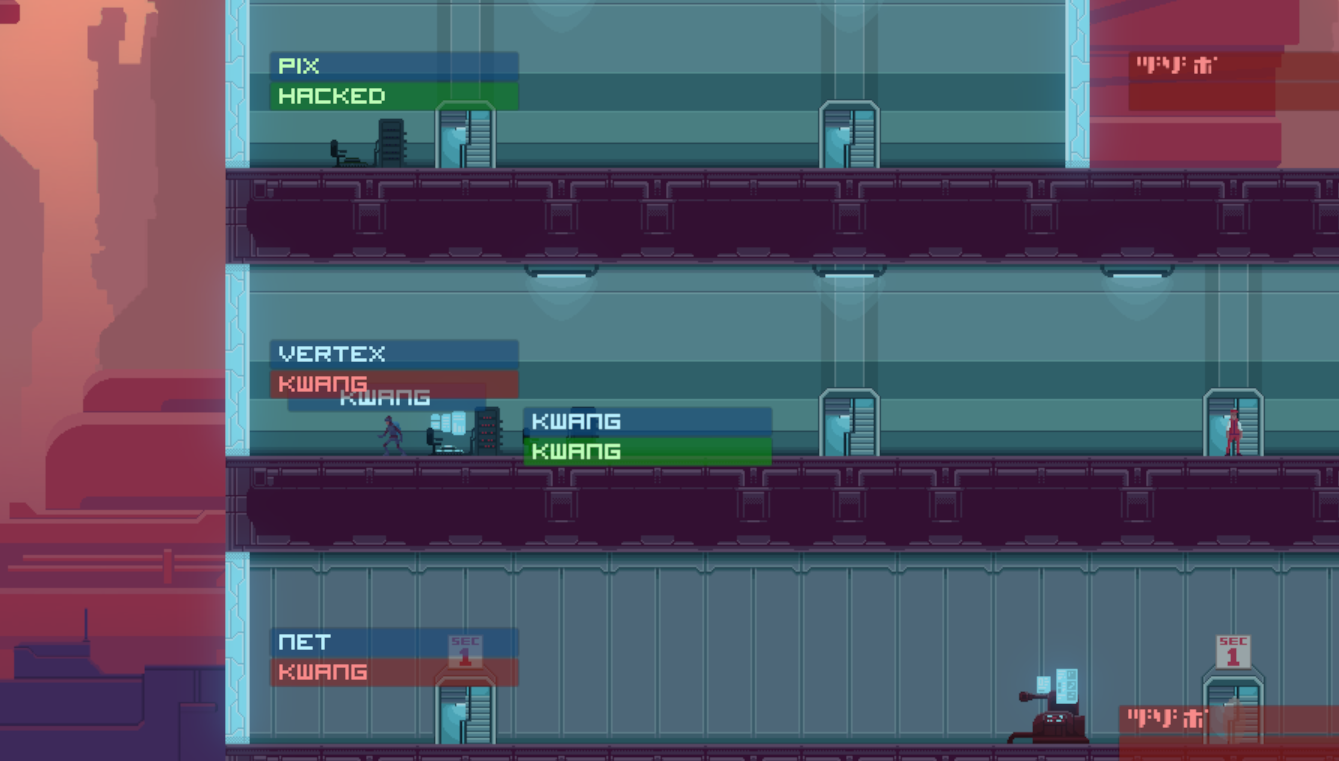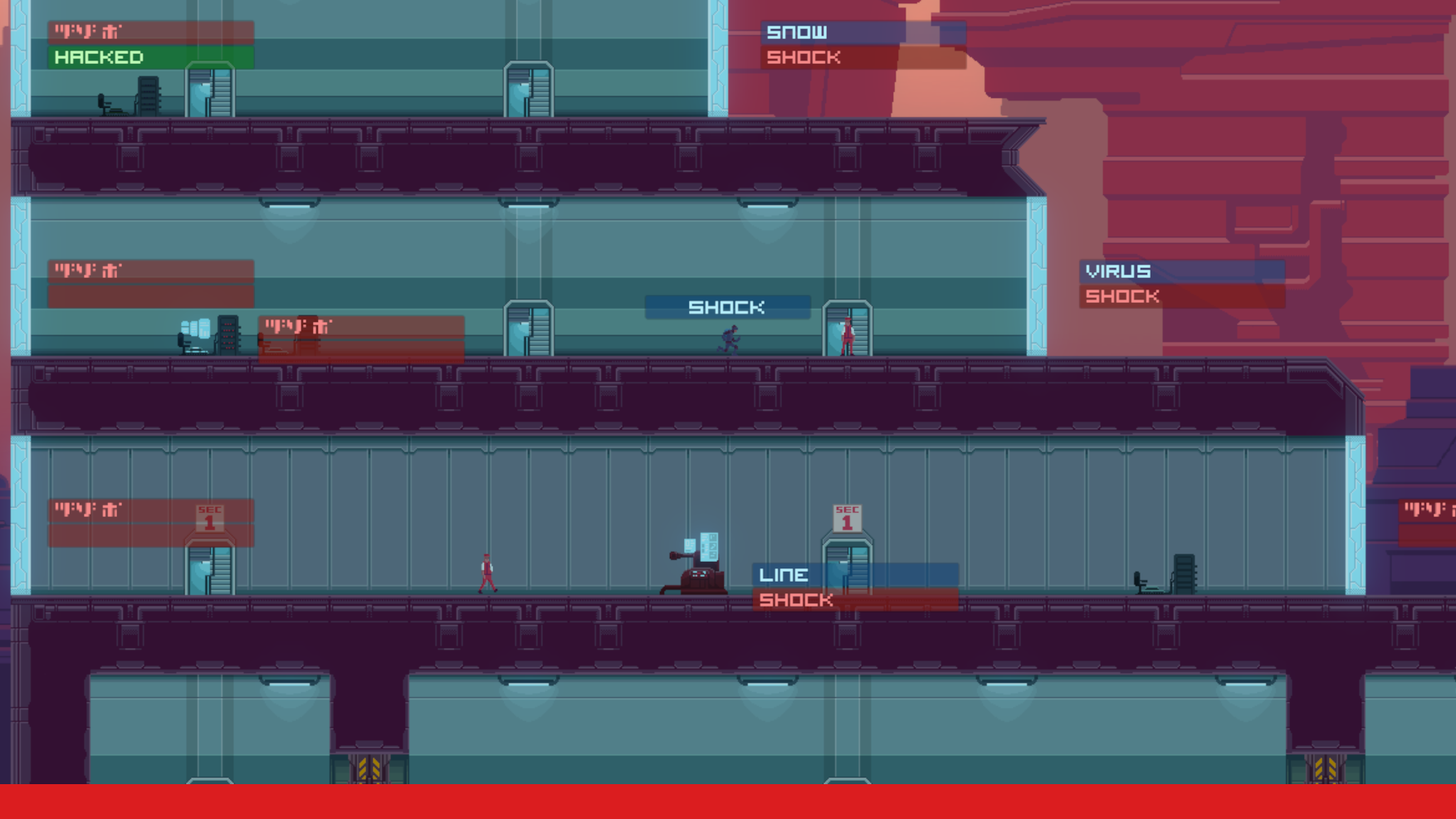In Rogue Process you're a rocket-powered window-hacking high-speed typist
Disable guards, steal data, and fly, all by entering text commands in this 2D stealth action game.

I got my hands on an early build of Rogue Process, which describes itself as "a game about high-speed running and slow-motion hacking", and is created by Mike Cook and Marsh Davies (the latter formerly of PC Gamer). In this 2D stealth action game, you play a hacker, taking jobs to infiltrate skyscrapers, steal data, neutralize targets, and leave behind a big pile of unconscious guards. Hacking is done with your keyboard, which slows down time while you quickly type text commands.
In the handful of demo missions available in the build I played, you can use these commands to disable security cameras, causing them to reboot (buying you a few quick seconds to pass through their cones of vision), and hack computer terminals to extract or destroy data as well obtain security keys that will let you pass through locked doors. You can even hack windows, which will allow you to break them. I don't know why you need to hack a window to break it, but let's just say it's some sort of computer window, okay? Point is, to hack something you press Tab, which slows time and shows you the hackable items in your vicinity, and the word you need to type in order to hack it.

It's quite a bit Gunpoint-ish: sneaking into high security buildings, avoiding detection (or trying to), zipping between floors on elevators to evade patrolling guards and knocking them out in slapstick-fashion when you get in a jam. One guard I shocked with my taser (by typing SHOCK) went sprawling into a second guard, who went flying into a third guard, who then smashed through a window and plummeted from the building. It was quite satisfying, especially since I hadn't even seen the other two guards, and I was going to have to hack that window shortly to escape anyway.
I also had a jetpack (I could activate it by typing BOOST), useful for traveling between buildings or when I accidentally missed a jump or got knocked out of a window myself, as well as a protective forcefield bubble with a limited duration. Mostly, though, I stuck to running, trying to give guards the slip as I bounced from floor to floor. Setting off security cameras, or letting guards spot me resulted in tougher guards with bigger guns showing up and trying to hunt me down.

I enjoy the typing of commands: it reminds me of Duskers, which also has command-prompt input scheme. There's a certain tension in having to type quickly and accurately when the pressure is on, like when you're in midair, in slow motion, crashing through a window into the middle of a group of guards, or when you're crashing through another window because you completely messed up and that group of guards are emptying their weapons at you.
I'm looking forward to seeing what other abilities Rogue Process will add—the taser is fun, but I'm feeling the need for some more subtle abilities, or maybe some more powerful ones. And except for carefully avoiding guards by sneaking in and out of elevators, there really weren't any stealth options available. But, again, this is an early build, so we'll see how the game develops in the future. It's planned for a release later this year.
You can visit the official Rogue Process site here.
Keep up to date with the most important stories and the best deals, as picked by the PC Gamer team.

Chris started playing PC games in the 1980s, started writing about them in the early 2000s, and (finally) started getting paid to write about them in the late 2000s. Following a few years as a regular freelancer, PC Gamer hired him in 2014, probably so he'd stop emailing them asking for more work. Chris has a love-hate relationship with survival games and an unhealthy fascination with the inner lives of NPCs. He's also a fan of offbeat simulation games, mods, and ignoring storylines in RPGs so he can make up his own.

